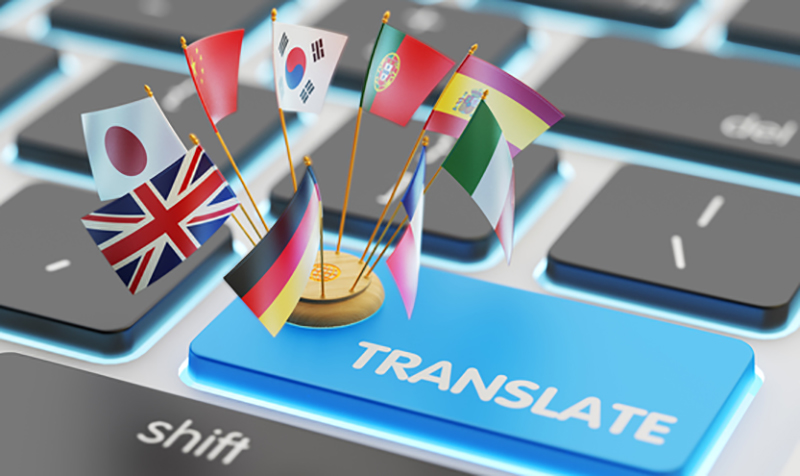Hello!
 When you think about international business communication and collaboration, English is always the main language being used. People from every niche use English as the main communication tool to make their business internationally recognized and accepted.
When you think about international business communication and collaboration, English is always the main language being used. People from every niche use English as the main communication tool to make their business internationally recognized and accepted.
However, not every segment of your business can be carried out in English. Thus, finance is a more delicate segment of your business, regardless of the industry. Those who don’t speak English well use a certified translation service to guarantee they are communicating correctly.
This is where financial translation steps in. Its importance for key industries may not be evident for you, but it’s immense. If you’re not sure how and why financial translation matters, just keep reading.
1. Foreign Collaboration
You want your business to grow and develop. Hence, you should always try and use every opportunity to expand your reach and get more people to invest in you or partner with you. Financial translation will help you localize your website and provide all the essential business information in a target market language.
 You’ll use it to:
You’ll use it to:
- provide business information
- show financial stability and potential
- show you’re ready for collaboration
Localizing your website, but especially the financial segment, into another language opens new doors for you. That’s why you should think about hiring a translator or a localization agency to help you reach this goal. You’ll be helping your business grow.
2. Accuracy & Clarity
Finance is not something you can fool around with. Accuracy and clarity need to be a top priority when you’re translating financial documents, paperwork, or plans.Why? Because a poor or improper translation can lead to ambiguity, disagreement, or even deal breaks in the most extreme cases.
 This is especially the case when you’re dealing with:
This is especially the case when you’re dealing with:
- financial terms and conditions
- contracts
- financial plans
- regulatory documents
Industries such as insurance, tax, real estate, and start-up always deal with this kind of paperwork and need a strong translation for each new collaboration. Financial translation, in this case, eliminates business disagreement and provides complete transparency.
3. Industry Knowledge
When a translator is dealing with financial terminology and paperwork, they can’t just use their general translation skills to provide a high-quality translation that the client will use with confidence. Instead, they need to have specific knowledge of the industry and the financial sector.
 That means that financial translation needs to be done by a professional who:
That means that financial translation needs to be done by a professional who:
- has to experience in a given industry or niche
- understands specific technical terminology
- is able to translate it accurately
You don’t want someone who doesn’t know how to translate financial terms accurately. A truly professional financial translator will make sure every aspect of your business communication is impeccable.
This is another reason why financial translation is important as a separate branch of translation.
4. Client Communication
Every new client is a separate but important link in the chain of your business success. And, if you don’t speak their language, you might lose them as potential long-term customers.
 Financial translation helps you:
Financial translation helps you:
- communicate with every client on their language
- help them get to know you and gain trust in your
- seal more deals
Whether you’re in banking, trade, investment, or any other industry, clear communication with each client is what will separate your business from the rest. Allowing them to read the conditions of your deal in their native language will give them much more motive to choose you over your competitors.
5. Local Compliance
Financial translation is not just about translating words from one language to another. It’s also about complying with the rules and regulations of each country you’re doing business with as a part of your localization strategy.
 A professional financial translator will help you:
A professional financial translator will help you:
- understand the differences between countries
- comply to the local rules
- seals deals that are legal and valid
Local compliance is another crucial segment of financial translation that all key industries need when doing business globally.
6. Staying Updated
We live in a fast-changing world, where technology and innovation influence every segment of our lives. The same goes for business, where we witness new rules, regulations, trends, and concepts being introduced almost on a daily basis.
You need to make sure you’re staying updated, and your clients see you as an up-to-date and professional business.
To make sure you’re up to the challenge, you also need to make your financial translation aligned with the latest news and trends.
 Professional financial translation means:
Professional financial translation means:
- keeping up with all the trends
- updating the terminology of old translations
- updating existing agreements and regulations
- helping you stay transparent and accurate
Financial translation will make sure you’re not using outdated terminology, or following last years’ trends and regulations.
Final Thoughts
 Financial translation is a specific field of translation that requires expertise and skills in both languages as well as in the industry in question.
Financial translation is a specific field of translation that requires expertise and skills in both languages as well as in the industry in question.
This is necessary to make sure the translation is accurate, professional and builds trust between two parties.
Hopefully, the list we’ve created above will help you understand why you need to hire a professional financial translator who’ll make sure every word you exchange between your partners and yourself is exactly what you want to say.
Thank you!
Subscribe to our newsletter! Join us on social networks!
See you!






